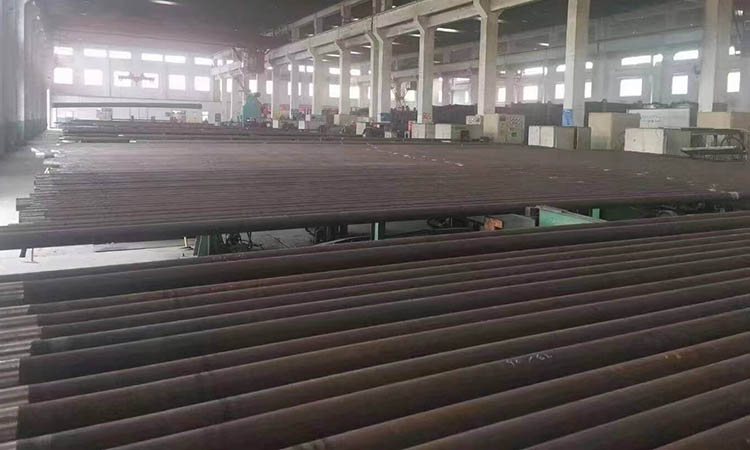How to select the right drill pipe?
How to select the right drill pipe?
Drill pipe is an indispensable tool in oil exploration and exploitation. Choosing oil drill pipe suitable for different geological conditions is crucial to improve the efficiency of exploration and exploitation. When choosing oil drill pipe, the following factors need to be considered:

1. Drill pipe material: For general geological conditions, drill pipes made of carbon steel or alloy steel can meet the needs. But for complex geological conditions, such as high temperature, high pressure, and high hardness formations, it is necessary to choose special alloy steel drill pipes that are corrosion-resistant and wear-resistant.
2. Drill pipe length and diameter: The length and diameter of the drill pipe should be selected according to the specific drilling task and geological conditions. Generally speaking, the larger the diameter, the higher the rigidity, which is more advantageous for formations with higher hardness; and the longer the length, the higher the efficiency and depth of drilling.
3. Drill bit shape and blade angle: Different geological conditions require drill bits with different shapes and blade angles. For weak formations, it is necessary to choose sharp-angled and sharp drill bits; for formations with higher hardness, it is necessary to choose drill bits with better protection,
4. Drilling lubrication and anti-stuck strategies: Under different geological conditions, different lubricants and anti-stuck strategies need to be selected. For formations that are prone to clogging, you can choose efficient lubricants and anti-stuck strategies to improve drilling efficiency
5. Drill pipe connection method: The drill pipe connection method should also be selected according to geological conditions. Common connection methods include API threaded connection, rotary joint, etc. Choosing a suitable connection method can ensure the safety and reliability of drilling.
In general, choosing oil drill pipes suitable for different geological conditions requires comprehensive analysis of various factors to ensure the smooth progress and safety of drilling operations. Only by choosing suitable oil drill pipes according to specific geological conditions can the efficiency of exploration and mining be greatly improved.
Safety regulations related to drill pipes
Oil drill pipe is an indispensable tool in oil exploration and production, and its safety regulations are of vital importance. The following are common safety regulations related to oil drill pipe:
1. Operators need to receive professional training
Operators of dry petroleum drill pipes must receive professional training and be familiar with the usage, operating procedures and emergency response methods of petroleum drill pipes. Only trained and qualified personnel may operate oil drill pipe.
2. Test the quality and safety of oil drill pipes
Before using the oil drill pipe, the quality and safety of the oil drill pipe must be carefully checked to ensure that there is no obvious damage or cracks. If problems are found, they should be replaced or repaired in time.
3. Regularly maintain and maintain oil drill pipes
Oil drill pipes are used frequently and therefore require regular maintenance and upkeep to ensure their normal operation and extend their service life. Maintenance includes cleaning, lubrication and replacement of worn parts.
4. Insist on wearing personal protective equipment
When operating oil drill pipe, operators must wear personal protective equipment, such as hard hats, safety shoes, gloves, etc., to reduce the occurrence of accidental injuries.
5. Strictly abide by operating procedures and specifications
When using oil drill pipe, operators must strictly abide by operating procedures and specifications, such as operating equipment correctly, complying with safety standards and avoiding violations, to ensure operating safety.
6. Take on-site safety measures
At the oil drill pipe operation site, safety measures must be taken, such as setting up warning signs, demarcating the operation area, and equipping necessary emergency equipment to deal with emergencies.
7. Conduct regular safety inspections and drills
Conduct regular safety inspections and drills on oil drill pipes to discover and eliminate safety hazards, improve emergency response capabilities, and reduce the possibility of accidents.
In short, as an important tool for oil exploration and mining, oil drill pipe safety regulations are an important guarantee for ensuring the safety of production and personnel. Only by strictly observing safety regulations can we effectively prevent accidents and ensure the smooth progress of production work.


